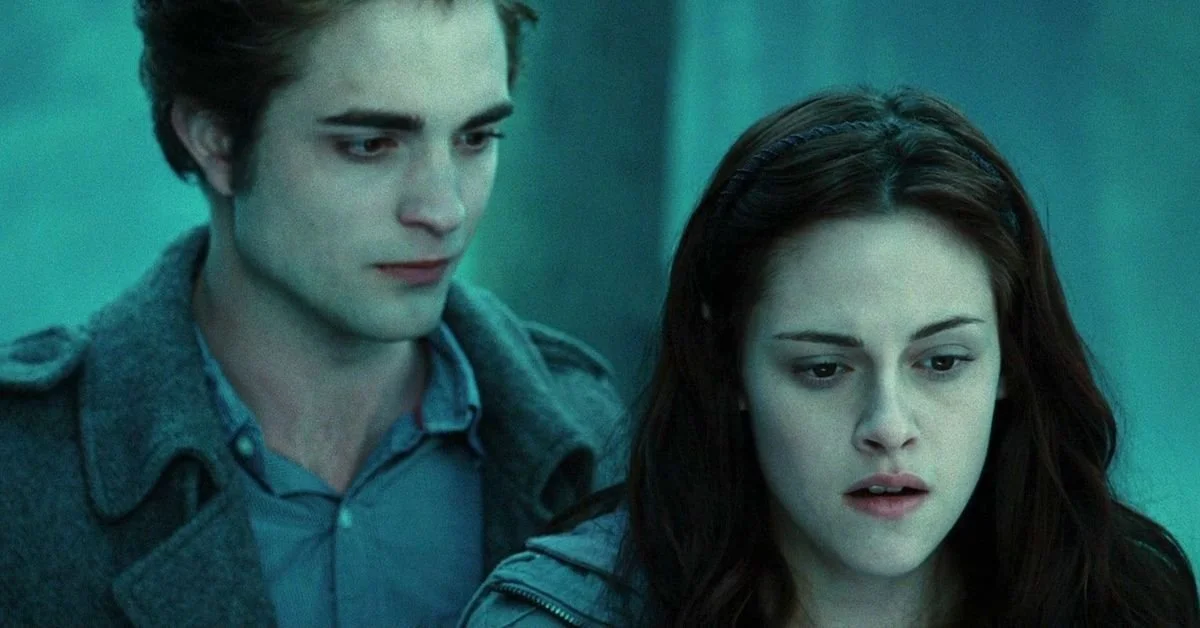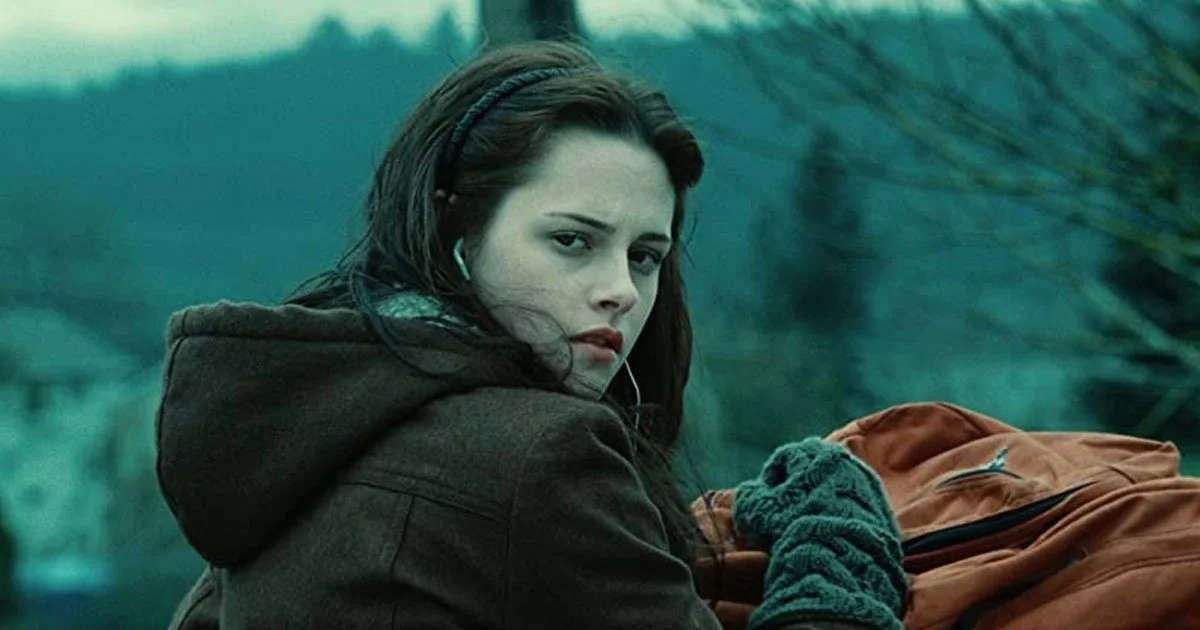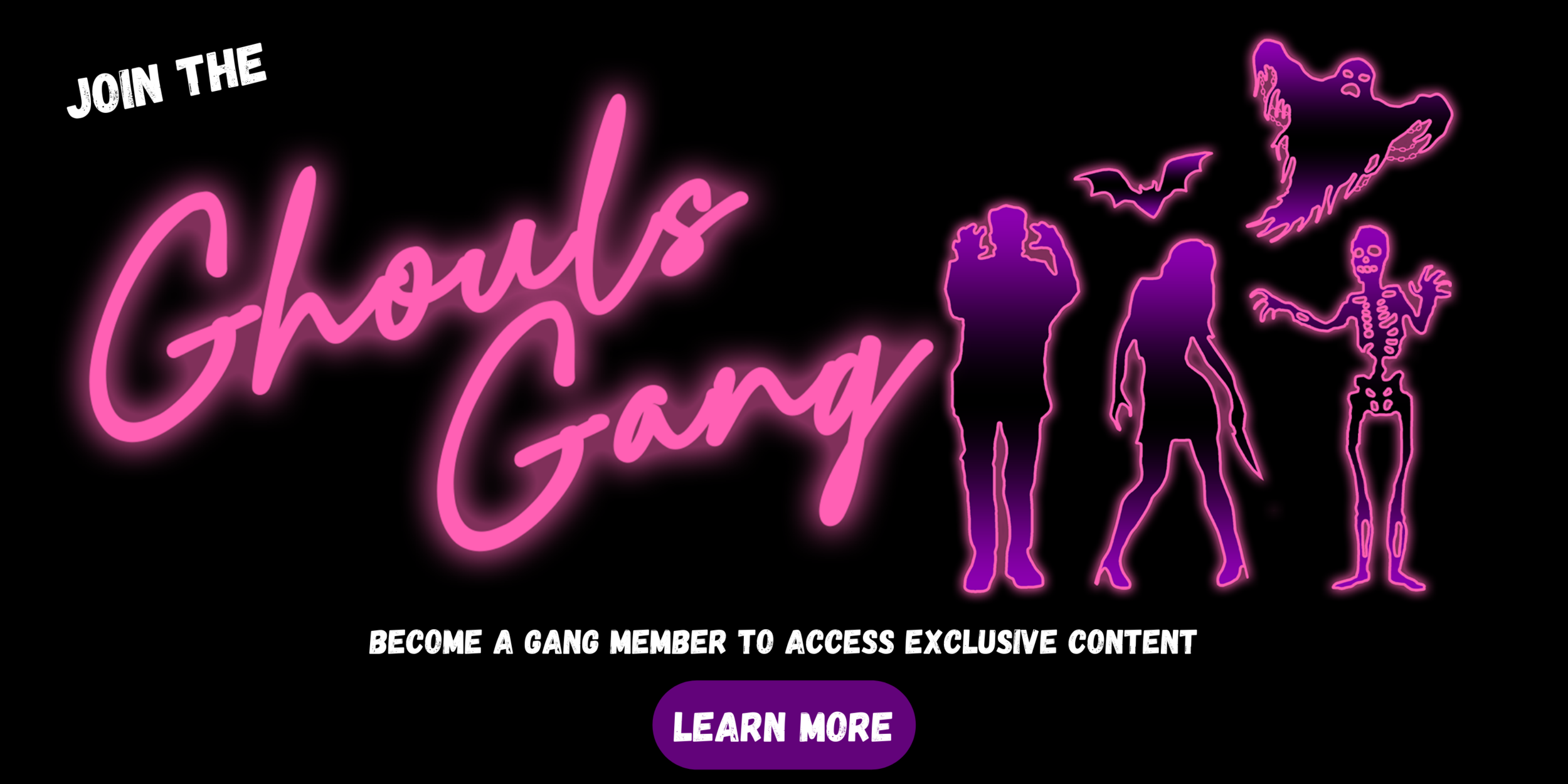[Editorial] In Defence of Twilight
14 years after the cultural phenomenon which was Twilight (2008) hit our worlds, I believe we should start to view the Saga with much kinder eyes. The franchise which adapted the young adult book series penned by Stephanie Meyer was ridiculed from the late 2000s and well into the 2010s. From being spoofed by every late-night show to the awful parody, Vampires Suck (2010), whose cast even seemed to hate their own involvement in the series.
The books and the films were, in a word, horny. But this wasn’t your usual teenage boy horny which is represented abundantly in media (like American Pie (1999) and films of that ilk). High school girls being horny is almost taboo. We do not talk about it. Enter Twilight. Vampires being the object of lust in question - who are incredibly sexy monsters, more so than Zombies or Werewolves (I am Team Edward till I die!) - seducing their victims with their good looks and charm and biting their victims on the erogenous area of the neck – ooft! Mother may I! The books and the film’s target audience were teenage girls and young women. Bella, played by Kristen Stewart, is the pursuer, she is the one wanting sex but Edward resists her advances stating he wants to wait for marriage. Having a female teenager pursue sexuality in this way is not often portrayed which is why I believe a lot of girls and young women attached themselves to the story, it definitely appealed to teenage me. It was honest about the fact that we are randy too. The age-old myth is that women aren’t sexual or at the very least not as sexual as men. I am sure you have heard of the beliefs that ‘sex is seen as a chore for women’ or ‘women don’t watch porn’ or ‘women don’t masturbate’. Which is all very untrue but these falsehoods still perpetuate. When this media emerged which tapped into the very real sexuality of women, society rebelled against it perhaps, to discredit the material and by extension these truths. This has recently happened again with Pixar’s latest film Turning Red (2022) where the themes of young girls being horny (one of the friends is reading a book called Nightfall – a callback to Twilight) over the local cute boys and an ‘N-Sync-esq’ boy band has caused some criticism for being deemed inappropriate for young audiences despite it being young people’s reality.
Meyer’s interpretation of the vampire is a subject of much debate. And I get it. “They can go out into the sun? They sparkle? They are ‘vegetarian’?”. In her defence, with all sub-genres of horror, people have taken artistic licence of the key tropes. In Danny Boyle’s 28 Days Later – the zombies are actually ‘infected’ and they run and vomit blood to pass on the virus as opposed to George A Romero’s interpretation of slow-moving flesh eaters. There has always been a freedom of creativity with horror in order to tell new and interesting stories. The core themes of vampire lore are intact in Twilight – they drink blood, they live forever and they can’t really be in the sun without attracting attention. I do think some of the hatred comes from the act of amending a horror sub-genre to appeal to an audience which tend to get no respect from wider society - teenage girls and young women.
When the media predominantly targets women, other areas of society like to criticise that they are being ignored. We have seen this when it was announced that Doctor Who (2005) would cast a female actress into the lead role with Jodie Whittaker. More recently a subscription company, Books That Matter - who specialise in curating boxes which include self-care items and a book written by a female author - went on Dragons Den in 2022 to seek investment for their venture only to come under scrutiny for mainly targeting women. Dragons Deborah Meaden and Sara Davies claimed the business was ostracising a major market by seemingly excluding men. Davies remarked that her 2 young boys wouldn’t want to read a book from a “pink box” claiming they are appealing to “a niche…but that’s a big audience missed.” Even though women make up 75% of book buyers – not really a niche market! But why should a book written by a woman mean men can’t also read it? Or is masculinity so fragile that men can’t possibly read something coming from the mind of a woman or from pink packaging (not the book cover, the box it is delivered in!). Pop culture and society at large are so used to asking everyone to empathise with male characters, and male points of view, for example back to Doctor Who in which for 12 iterations The Doctor was played by men. Despite this, the show attracted male and female viewers. I was a massive fan and didn’t have an issue with needing to empathise with characters who do not look like myself. But when we ask men to do the same, by having a female lead in a previously male dominated media, it can cause frustration and anger to pour out into social and traditional media alike. Peter Davison (fifth Doctor) commented that the casting of Whittaker as the 13th Doctor was “the loss of a role model for boys who I think Doctor Who is vitally important for” IndieWire 2017. But young girls have had to look to male leads as role models for the best part of 50 years. We constantly reinforce the idea that men and young boys are unable to empathise with female characters, yet expect that young girls and woman should relate to male characters. Twilight unashamedly aligned itself with a mainly female audience, garnered mainly female fans and was scrutinised and ridiculed for doing so.
GHOULS PODCAST
Another criticism of the Twilight Saga is the acting by the leads, Kristen Stewart’s Bella and Robert Pattinson’s performance of Edward. Kristen was criticised as being bland regardless of the fact that it was intentional in terms of how the character was written and Rob as being too stiff as Edward, but arguably such a performance is meant to convey that he is restraining himself from drinking Bella’s blood. However, they were also young actors. Stewart still gets hate for the facial expressions she pulls in the films – I see stills posted on Twitter even now where Bella has pulled an awkward face, because apparently every still from a film should be deemed ‘attractive’. I like that Kristen Stewart had the confidence to be ‘ugly’ in some scenes where it is called for. Pattinson was the most vocal about his hate for Twilight – wanting to be an arthouse darling rather than the blockbuster leading man Hollywood saw for him. But again in his more recent words “it’s not even cool to be a hater anymore” Insider 2022. Both leads have started to talk more openly about their experiences of being part of such a phenomenon. It seems that they are a lot kinder to their work with 10 years’ distance from their final outing as Edward Cullen and Isabella Swan. And as a fan of both of their work before Twilight, during and now after, it makes me happy that they see the positive impact it has had on their careers as well as the wider pop culture.
Rewatching the Saga most recently, there are a few elements that are total cringe. The writing can be poor, “hold on tight spider-monkey” springs to my mind and it is over dramatic. More dangerously though, Jacob’s insistence that Bella loves him, despite her saying no multiple times is really problematic and toxic in hindsight. I am not a massive fan of the love triangle element of the story, for me, Jacob is never a true contender – but, especially in Eclipse (2010), Jacob reaches wild levels of dismissiveness of Bella’s feelings which she constantly vocalises and is ignored. She is continually treated like she cannot make her own decisions. From a decision to wanting to be a vampire, marrying Edward or even loving Edward over Jacob, Bella is constantly dismissed as “she doesn’t know what she wants”. When women say no – that should be heard and believed.
Twilight didn’t need to bring in a full resurgence of the vampire genre – but it did ignite a new depiction of these bloodsuckers – hyper-sexualised horn dogs who are played by very attractive men. With the help of True Blood and The Vampire Diaries (also adapted from novels) carrying this torch, it felt as though audiences were inundated with sexy vampires. In the immortal words of Stanley Hudson from The Office US “How many freaking vampires am I supposed to care about these days?”. Similar to how some felt with the zombie resurgence from early 00s to late 10s – we were growing tired of the sexy vampire trope.
Luckily the Twilight Saga ended in 2012 before the sub-genre really ran out of steam, with one of the wildest plot twists in cinematic history in Breaking Dawn Part 2. I was in a midnight screening and the very audible gasp around the room when it happened was honestly awesome – it’s why we go to the cinema. And Twilight gave me that. Ultimately, The Saga is nostalgic fun for those who grew up with it and who have had to defend their opinion for almost 15 years. Is it perfect? No. But so few films are. Pop culture has benefitted massively from the loyalty and horniness of women and teenage girls, from Beatlemania and Elvis obsession to One Direction and Twilight. Therefore, this target audience has more than proven it deserves its due respect, instead of being mocked or dismissed. This attitude is unproductive and demoralising to future generations of creative minds. Let’s not ostracise a whole half of the audience just because it is deemed ‘too girly’. We are ticket buyers, we are merchandise wearers, we are DVD collectors – create media with us in mind, unashamedly.




![[Editorial] In Her Eyes: Sara Lowes in Witchfinder General (1968)](https://images.squarespace-cdn.com/content/v1/5fe76a518d20536a3fbd7246/1655655953171-8K41IZ1LXSR2YMKD7DW6/hilary-heath.jpeg)
![[Editorial] The Babadook (2014)](https://images.squarespace-cdn.com/content/v1/5fe76a518d20536a3fbd7246/1651937631847-KR77SQHST1EJO2729G7A/Image+1.jpg)
![[Editorial] In Her Eyes: Helen Lyle in Candyman (1992)](https://images.squarespace-cdn.com/content/v1/5fe76a518d20536a3fbd7246/1649586854587-DSTKM28SSHB821NEY7AT/image1.jpg)
![[Editorial] Lorraine Warren’s Clairvoyant Gift](https://images.squarespace-cdn.com/content/v1/5fe76a518d20536a3fbd7246/1648576580495-0O40265VK7RN03R515UO/Image+1+%281%29.jpg)
![[Editorial] Sara in Creep 2 (2017)](https://images.squarespace-cdn.com/content/v1/5fe76a518d20536a3fbd7246/1646478850646-1LMY555QYGCM1GEXPZYM/27ebc013-d50a-4b5c-ad9c-8f8a9d07dc93.jpg)
![[Editorial] Sally Hardesty in The Texas Chainsaw Massacre (1974)](https://images.squarespace-cdn.com/content/v1/5fe76a518d20536a3fbd7246/1637247162929-519YCRBQL6LWXXAS8293/the-texas-chainsaw-final-girl-1626988801.jpeg)
![[Editorial] Margaret Robinson: Hammer’s Puppeteer](https://images.squarespace-cdn.com/content/v1/5fe76a518d20536a3fbd7246/1630075489815-33JJN9LSGGKSQ68IGJ9H/MV5BMjAxMDcwNDI2Nl5BMl5BanBnXkFtZTcwOTMxODgzMQ%40%40._V1_.jpg)
![[Editorial] Re-assessing The Exorcist: Religion, Abuse, and The Rise of the Feminist Mother.](https://images.squarespace-cdn.com/content/v1/5fe76a518d20536a3fbd7246/1629995626135-T5K61DZVA1WN50K8ULID/image2.jpg)
![[Editorial] Unravelling Mitzi Peirone’s Braid (2018)](https://images.squarespace-cdn.com/content/v1/5fe76a518d20536a3fbd7246/1628359114427-5V6LFNRNV6SD81PUDQJZ/4.jpg)















![[Editorial] Oscar Nominations 2026: Where to stream all the horror picks](https://images.squarespace-cdn.com/content/v1/5fe76a518d20536a3fbd7246/1769113319180-4INRRNMZK4DZLHRSUXX5/rev-1-GRC-TT-0026r_High_Res_JPEG-1024x372.jpeg)
![[Editorial] 10 Films & Events to Catch at Soho Horror Film Fest 2023](https://images.squarespace-cdn.com/content/v1/5fe76a518d20536a3fbd7246/1700819417135-299R7L4P0B676AD3RO1X/Screenshot+2023-11-24+at+09.41.52.png)
![[Editorial] 9 Horror Nintendo Switch Games To Play](https://images.squarespace-cdn.com/content/v1/5fe76a518d20536a3fbd7246/1697214470057-3XZXX8N4LYIMDFWS6Z3P/Screenshot+2023-10-13+at+17.20.13.png)
![[Mother of Fears] Mothering in Silence in A Quiet Place (2018)](https://images.squarespace-cdn.com/content/v1/5fe76a518d20536a3fbd7246/1696445921315-HZJ2DZYQIH6VVWXBO2YL/Screenshot+2023-10-04+at+19.52.29.png)
![[Editorial] 5 Female Focused Horror Book Recommendations](https://images.squarespace-cdn.com/content/v1/5fe76a518d20536a3fbd7246/1696441981361-52EQCTJ7AT2QF1927GM7/919xtm6d3fL._AC_UF894%2C1000_QL80_.jpg)
![[Editorial] 9 Best Slashers Released Within 10 Years of Scream (1996)](https://images.squarespace-cdn.com/content/v1/5fe76a518d20536a3fbd7246/1695478839037-LOFHGVM3H6BMSZW7G83M/Screenshot+2023-09-23+at+15.15.11.png)
![[Mother of Fears] Mother Vs. Monster in Silent Hill (2006)](https://images.squarespace-cdn.com/content/v1/5fe76a518d20536a3fbd7246/1695485781119-H6GNP0G3J2TLPAOIABV7/Screenshot+2023-09-23+at+17.11.56.png)
![[Editorial] 9 Terrifying Cerebral Visions in Horror Movies](https://images.squarespace-cdn.com/content/v1/5fe76a518d20536a3fbd7246/1693509801235-X23OL50T1DVGECH0ZJK2/MV5BMjQ0MTg2MjQ4MV5BMl5BanBnXkFtZTgwMTU3NDgxMTI%40._V1_.jpg)
![[Mother of Fears] I Don’t Wanna Be Buried in a Pet Sematary (1989) and (2019)](https://images.squarespace-cdn.com/content/v1/5fe76a518d20536a3fbd7246/1691328766069-QFNAVJOMFZVZ5CLU1RWM/Screenshot+2023-08-06+at+14.23.13.png)
![[Mother of Fears] How I Love to Love Nadine in The Stand (2020)](https://images.squarespace-cdn.com/content/v1/5fe76a518d20536a3fbd7246/1690213172707-TKM9MZXK02EVCIX30M1V/Screenshot+2023-07-24+at+16.29.11.png)

Possessor is a slick futuristic thriller in which Tasya Vos, an assassin for hire, must manage her responsibilities as an elite killing machine and complex feelings towards her husband and son, whilst taking on another high-profile job that will push her to the edge of her sanity.